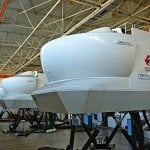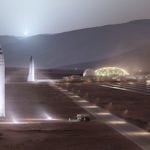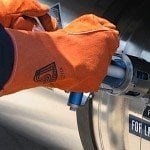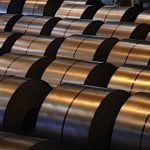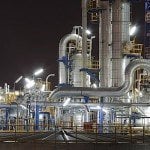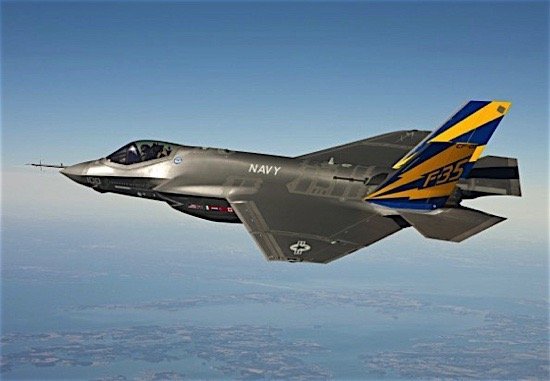
Magellan Aerospace, the Mississauga-based designer and manufacturer of components and assemblies for aerospace markets, announced today that its decade-long contract with BAE Systems to produce horizontal tail assemblies for the Lockheed-Martin F-35 Lightning II jet fighter aircraft will continue for another two years. The value of the two-year continuation of the existing contract is more than CDN $70 million.
A statement from Magellan says that the horizontal tail assemblies produced at Magellan will be used on the Conventional Takeoff and Landing (CTOL) version of the F-35. There are two other versions in the F-35 program, which has been described in Defence Industry Daily as the largest single global defence program in history, with a total cost of $382 billion. More than 1,000 of the assemblies are expected to be produced over the life of the F-35 program. However, “significant increases” in the annual program quantities for the US Department of Defence and other buyers could result in production of up to 4,000 F-35 fighters globally. Magellan could earn up to $2 billion, according to the director of the F-35 program, Scott McRady.
Magellan’s projected total revenues for the F-35 program could reach CDN $2.0 billion based on the current anticipated aircraft requirements. We are seeing significant increases in annual program quantities from both the US DoD and the international partners. The program could produce up to 4,000 F-35 fighters globally.
It was the second announcement in just over a week. On October 13, Magellan finalized agreements with Boeing Co. for work on the 777X program and on the 787 Dreamliner. The Boeing 777X is scheduled to begin flying in 2020 and has been called the world’s largest and most efficient twin-engine jet. Magellan will manufacture complex titanium components for the craft, at plants in New York State and Kitchener, Ontario. The work on the Dreamliner is an extension of an existing agreement.
Magellan’s stock rating was raised to “Buy” earlier this week by three market analysts. Stock prices opened at $16.73 on Monday. The company has a market capitalization of $972.09 million. Targets for the stock range from $21.00 (Canaccord Genuity) to $23.75. Share prices have risen 13.21 per cent since March, 18, and the company has outperformed the S&P500 index by 8.26 per cent, according to Seekingalpha.com.



